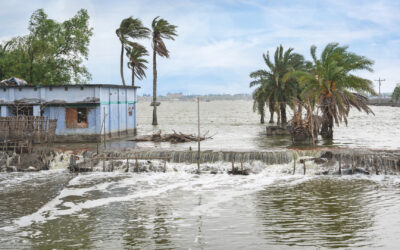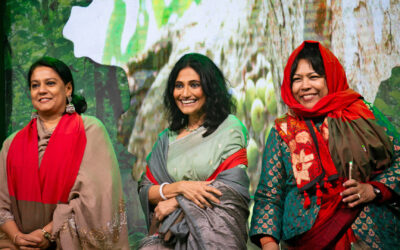by KAZI AMDADUL HOQUE
October 29, 2021
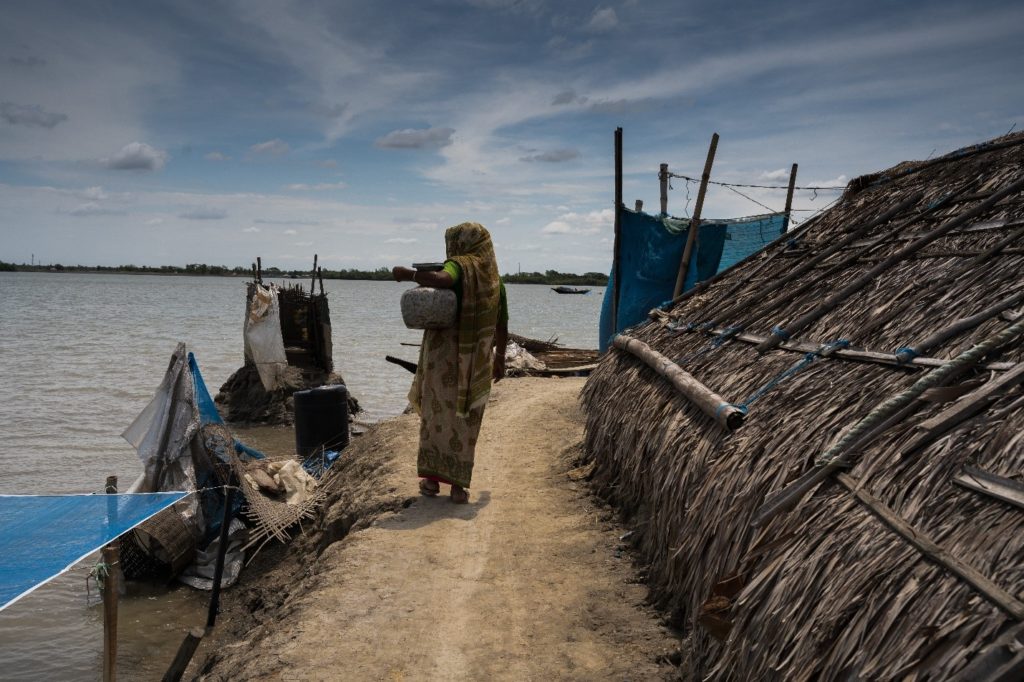
On the edge of the largest mangrove in the world, home of the famous Royal Bengal Tiger, I met Krishna Rani.
The rhythm of the tides of the Bay of Bengal, the ebb and flow of the river, and the fertility of this great golden delta had nurtured her through most of her peaceful life. On a first impression, the site of her home—on the shore of a river which dances with the glorious colours of the setting sun, in the cradle of the great Sundarbans—could be a cottage for tourists.
But when I listen to her story, the glamour glow of the UNESCO world heritage site and its tigers fades away, leaving a harsh and bitter story of negligence, and domination of the powerful over the helpless.
In the last stages of her life, Krishna is confused by the turn of events. What was a promising youth, with a happy marriage, healthy children, abundance of the land around her has become a story of loneliness and scarcity in a matter of a few years?
In 2009, the great Cyclone Aila sent waves crashing over embankments all over the southern coast of Bangladesh, taking lives and leaving people homeless. Krishna and her husband had enjoyed prosperity and security from the acres of paddy fields around their home. But after Aila, the land’s fertility started to decline. It happened at a bad time. Her husband had just taken exorbitant loans to marry off their daughters—two in close succession. After the rains he took another loan to sow his next crop. The harvest was miserable.
There were other signs of change. The water in the tube wells began to develop a salty hint. Krishna’s husband had aged quickly. Being irrecoverably indebted was harsh on him. He died a decade after Aila.
Krishna, who lived well her whole life, had no way to deal with poverty. The conditions continued to decline. The water grew steadily worse, vegetables stopped growing in her yard, fish was increasingly difficult to find in the river. She developed an ache in her stomach. She developed another strange condition that she had never known, and which was too embarrassing to talk about. She would bleed during her bowel movements. She heard that others in the village were also experiencing this strange condition.
The year after her husband died, their home was damaged by another great cyclone, Amphan. Recently, there have been terrible storms almost every year. She lives in fear of its walls collapsing again.
The embankments grow weaker. Sometimes there is no protection against the tides. Last year, for several months, the high tide would invade her home twice a day. Now the embankments are fixed, but a putrid water remains trapped inside, not far from her house. The same river which was once brought security and luck, now kept reminding her of her loss.
Krishna has never been to the city. Her air conditioner is the wind filtering through the mangroves. Her washing machine is a pond. There is no electricity in her kerosene-lit hut.
She doesn’t need electricity or a hi-tech lifestyle, or a washing machine, but she needs protection, assistance for adaptation, and food security. She needs access to safe drinking water. She needs to grow vegetables for a balanced diet.
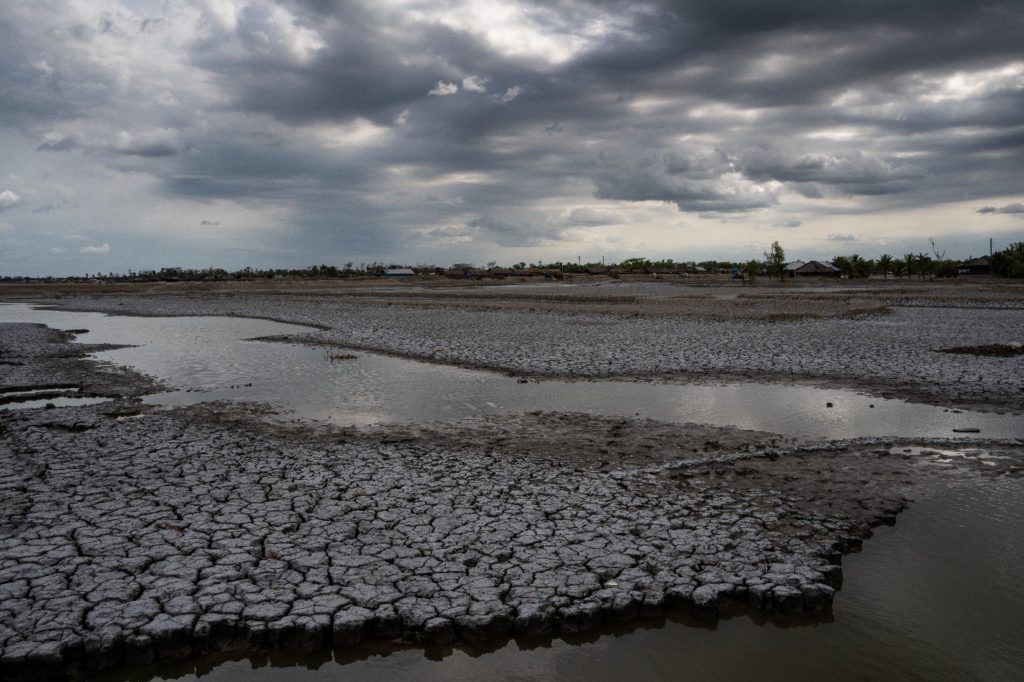
Her suffering makes me think, what’s her fault? What does she have to do with the enormous changes that have happened in her environment? What part has she played in the intensification of the storms and the salinisation of her soil?
She has emitted zero carbon. But she is paying a hefty carbon tax. We are the ones who are responsible for her condition. Those going to COP26.
I am going to COP26 because I really want to shout out at world leaders on her behalf.
For the last two-and-a-half decades, the Conference of Parties has been dealing with the climate crisis. The negotiations go on and on. Meaningful decisions are few and far between. And it seems we have even given up trying to find a solution for loss and damage. Even though there are plenty of funds that exist on paper at the international and national levels, the bureaucracy hinders access to those funds. These funds should not follow commercial banking protocols, but they should follow a humanitarian protocol that should be easy to access. Only 10% of climate funding makes its way to the people who really need it.
Meanwhile, Krishna continues to live in pain. She represents 13.3 million people from the coastal regions of Bangladesh coastal at risk of being forced out of their homes by 2050 due to salinity, sea level rising and other adverse impacts of climate change.
There is no legal platform where she can claim her rights. And there is nobody to take up her issues seriously.
Even global funding commitments remain uncertain. There are repeated appeals to honour the pledges made by world leaders for the countries in vulnerable conditions. In 2009, developed countries agreed to contribute $100 billion a year in climate finance to poorer countries by 2020; but the target was not met—even though it was not nearly enough to address the urgency and scale of the crisis. In 2021, political and business leaders have committed more than $400 billion to the expansion of renewable and clean energy, the UN announced. National and global governance needs to be refined to address this new crisis. National and international legal frameworks must be reviewed periodically to respond to emerging climate issues. Pronouncements made at international climate conferences should be accessible to the masses.
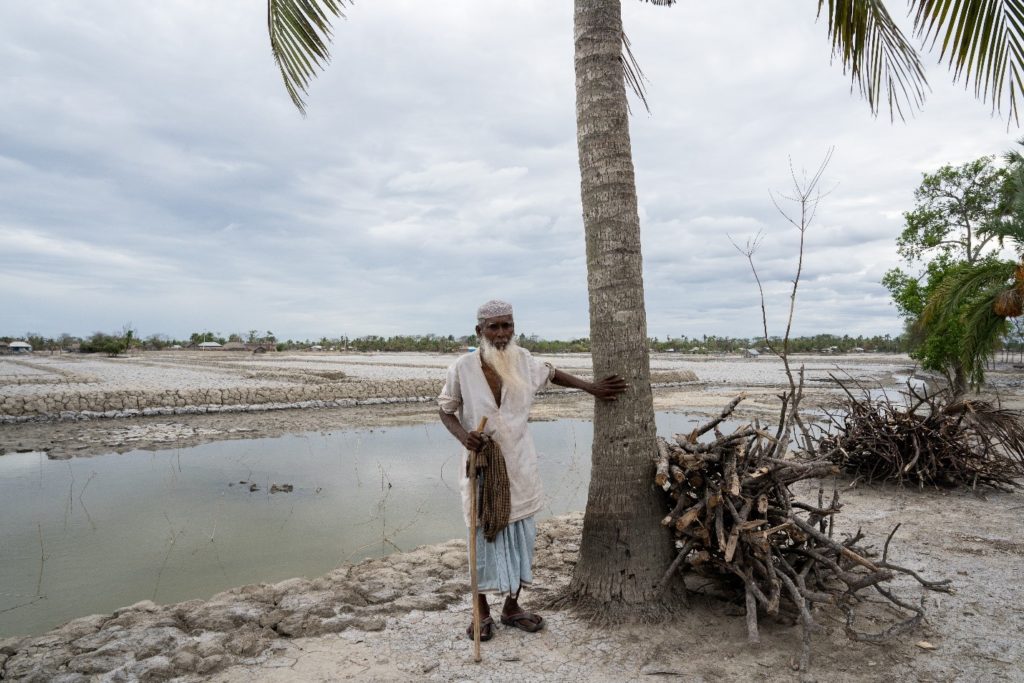
One in every seven people in Bangladesh is at risk of displacement by 2050 due to climate change. All these people are being traumatised. Policymakers and scientists must work together to find which populations will be affected, and to find solutions.
I want to say these things at COP. Let political leaders continue their negotiations and dialogue. At the same time, we, all of us—individuals, nations and corporations, with whatever power we have—need to maximise our effort to make sure the suffering, loss and damage of Krishna Rani should be addressed. It should not be treated as a local issue, but a global one.
Meantime, there are plenty of adaptation solutions invented at the local level and implemented effectively. The world can see and learn from these local solutions, inherited and refined over generations through indigenous knowledge and lived experience. Local people and ecosystems managed co-existent for centuries. They need patronisation in a structured manner.
This world should not tolerate suffering when we know the reason for it. We should anticipate and prevent it. Instead of statecraft and strategy, deals and treaties, it should be humanitarian values and obligations that should drive climate action, based on the ability of each nation. Climate action goes beyond responsibility. It’s an obligation.
Kazi Amdadul Hoque is the senior director of strategic planning and head of Climate Action at Friendship.

